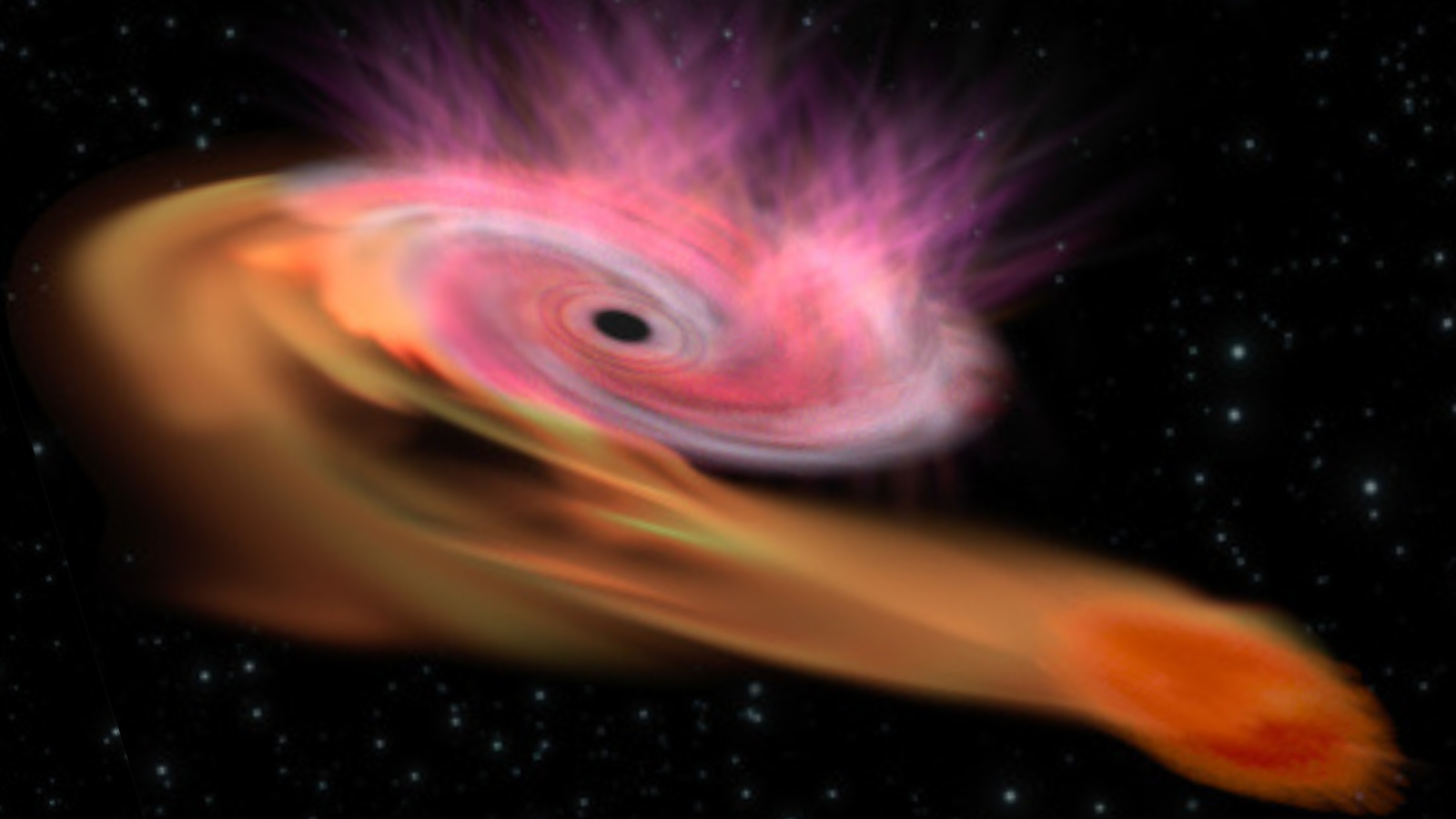Google Doodle celebrates doctor who popularized hand-washing. Here's how to wash your hands in space.
"Sort of like if you were on a sailboat and you needed to get clean you'd do it sort of the same way."
Breaking space news, the latest updates on rocket launches, skywatching events and more!
You are now subscribed
Your newsletter sign-up was successful
Want to add more newsletters?

Delivered daily
Daily Newsletter
Breaking space news, the latest updates on rocket launches, skywatching events and more!

Once a month
Watch This Space
Sign up to our monthly entertainment newsletter to keep up with all our coverage of the latest sci-fi and space movies, tv shows, games and books.

Once a week
Night Sky This Week
Discover this week's must-see night sky events, moon phases, and stunning astrophotos. Sign up for our skywatching newsletter and explore the universe with us!

Twice a month
Strange New Words
Space.com's Sci-Fi Reader's Club. Read a sci-fi short story every month and join a virtual community of fellow science fiction fans!
In light of the global COVID-19 outbreak, today’s #GoogleDoodle recognizes Dr. Ignaz Semmelweis, widely known as the first person to suggest the life-saving benefits of handwashing 👐💧Learn proper @WHO recommended handwashing techniques → https://t.co/xItSgCM5I6 pic.twitter.com/6lhfcBqDGVMarch 20, 2020
Washing your hands with soap and water is a critical measure to prevent the spread of viruses like the new coronavirus responsible for a global pandemic today, as well as bacteria that can make us sick.
It is so important that today (March 20) Google honored Ignaz Semmelweis, the German-Hungarian physician and scientist who popularized how important hand-washing is in 1847 by demonstrating with his work that cleaning hands drastically reduced the number of deaths of women after childbirth.
Hand-washing is even important for astronauts in space.
Video: How to wash your hands in space without gravity
More: The coronavirus pandemic and space exploration: Full coverage
But in the microgravity (or close to zero gravity) environment aboard the International Space Station, it's not so easy to wash your hands. If you opened up a faucet and squirted soap onto your hands, those liquids would just go everywhere (and it'd make a real mess of things) because there isn't any gravity to make them fall and splash down onto the ground.
As part of a series of videos showing what life is like aboard the space station, Canadian astronaut Chris Hadfield demonstrated how astronauts wash their hands in space. As Hadfield explains in the video, it's "sort of like if you were on a sailboat and you needed to get clean you'd do it sort of the same way."
First, he showed that astronauts wash their hands using a "no rinse body bath," which comes in a pouch with a straw coming out of it. It's "a special type of slightly soapy water so you don't need to have a bunch of fresh water afterwards," he said.
Breaking space news, the latest updates on rocket launches, skywatching events and more!
As Hadfield showcased, astronauts squirt a little glob of the body bath into their hands. Now, if you squirted water or soap onto your hand on Earth, it would just leave whatever receptacle it was in, fall into your hand (and maybe drip onto the floor). But in space, the glob that squirts seems to almost "stick" to the pouch's straw and then to Hadfield's hand.
Related: Chris Hadfield, social media's space star
Once the glob of water is on their hands, sticking to the surface and strangely undulating in the palm, they simply rub their hands together as you would with soap and water here on Earth, and then grab a towel and dry off. A few droplets might fly off while the astronauts rub their hands together, but this process ensures that a minimal amount of water is let loose aboard the space station.
After all is said and done, the astronauts tuck their towels somewhere so that they don't float around; that's "so that the evaporated water gets back into the space station and we can use that water again."
In space, astronauts have finite resources, so things we take for granted like water are extra valuable. This means that even the droplets collected on a towel from washing your hands are vital and can and should be reused.
- Life in Space: Astronaut Chris Hadfield's Video Guide
- Star Man: Q&A with Astronaut Chris Hadfield
- Chris Hadfield: Canadian Astronaut-Guitarist
Follow Chelsea Gohd on Twitter @chelsea_gohd. Follow us on Twitter @Spacedotcom and on Facebook.
OFFER: Save at least 56% with our latest magazine deal!
All About Space magazine takes you on an awe-inspiring journey through our solar system and beyond, from the amazing technology and spacecraft that enables humanity to venture into orbit, to the complexities of space science.
OFFER: Save at least 56% with our latest magazine deal!
All About Space magazine takes you on an awe-inspiring journey through our solar system and beyond, from the amazing technology and spacecraft that enables humanity to venture into orbit, to the complexities of space science.
OFFER: Save at least 56% with our latest magazine deal!
All About Space magazine takes you on an awe-inspiring journey through our solar system and beyond, from the amazing technology and spacecraft that enables humanity to venture into orbit, to the complexities of space science.

Chelsea “Foxanne” Gohd joined Space.com in 2018 and is now a Senior Writer, writing about everything from climate change to planetary science and human spaceflight in both articles and on-camera in videos. With a degree in Public Health and biological sciences, Chelsea has written and worked for institutions including the American Museum of Natural History, Scientific American, Discover Magazine Blog, Astronomy Magazine and Live Science. When not writing, editing or filming something space-y, Chelsea "Foxanne" Gohd is writing music and performing as Foxanne, even launching a song to space in 2021 with Inspiration4. You can follow her on Twitter @chelsea_gohd and @foxannemusic.

